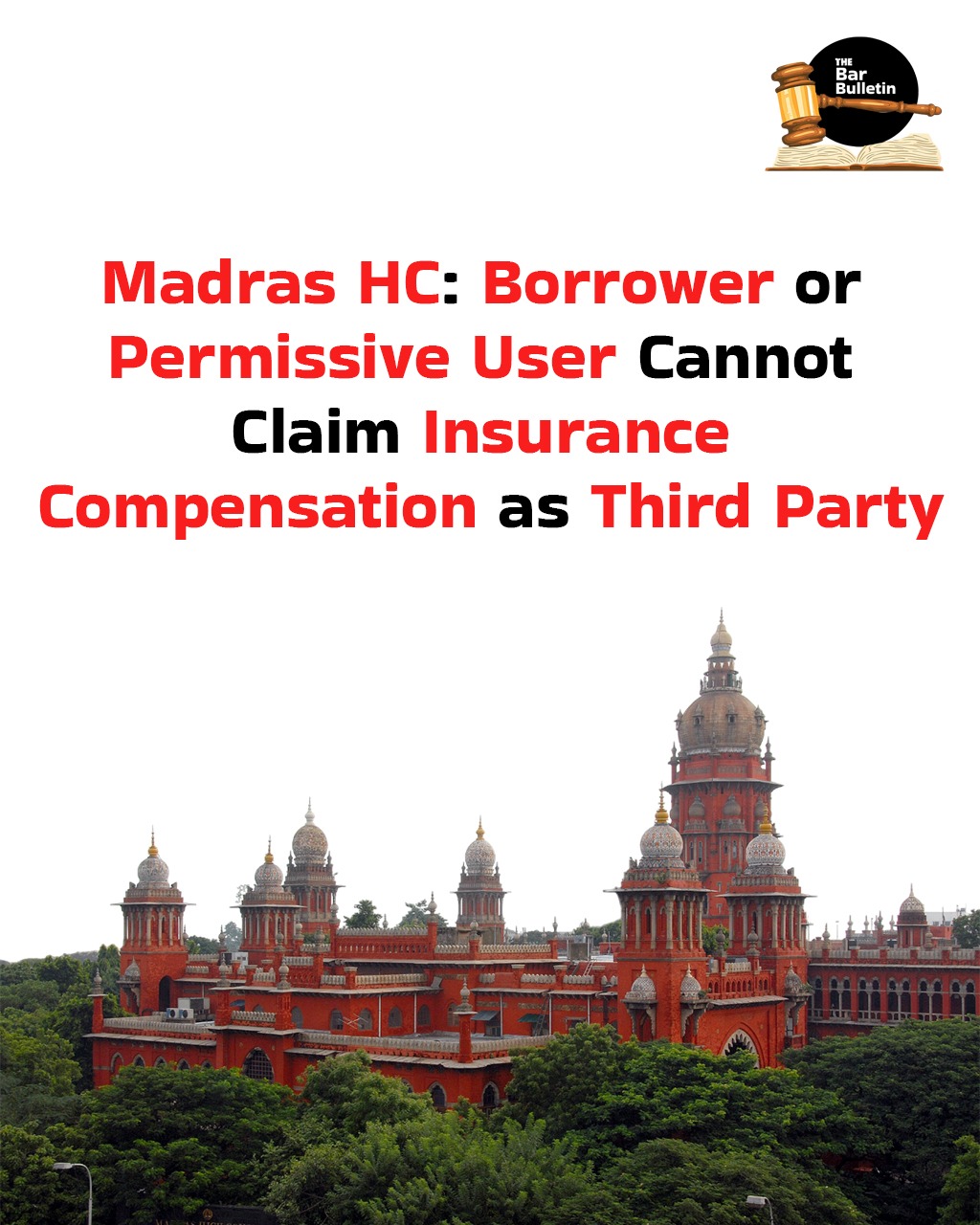The Madras High Court allowed the insurer’s appeal, overturning the Motor Accident Claims Tribunal’s award and holding the insurance company not liable to pay compensation for a fatal accident where the deceased was driving his brother’s vehicle he had borrowed.
The deceased had borrowed his brother’s car and was driving with family on 23 February 2009 when he lost control, causing the car to capsize and resulting in fatal injuries. An FIR was registered against the deceased for rash and negligent driving. The deceased’s family filed a claim before the Motor Accident Claims Tribunal under Section 163-A of the Motor Vehicles Act.
The Tribunal found the insurance company liable and awarded compensation amounting to Rs. 3,93,500/- plus 8% interest to the legal heirs of the deceased. The appellant-insurer filed the instant appeal against this order.
The appellant-insurer argued that only third parties or paid employees are covered under the policy and Section 147 of the Motor Vehicles Act. The claimant admitted in cross-examination that the car belonged to the deceased’s brother and was not driven by a paid driver at the time. It was further argued that the deceased was not a third party as he had stepped into the shoes of the vehicle owner while driving.
The Bench comprising Justice R. Poornima found that the deceased was responsible for the accident, having driven negligently. The Court relied on Supreme Court precedent in Ramkhiladi v. United India Insurance[1] affirming that a borrower or permissive user is not a “third party” and cannot claim compensation from the insurer when the accident is due to their own negligence. The court found that the deceased, as a borrower, stepped into the shoes of the owner and could not claim under Section 163-A.
In result, the High Court allowed the insurer’s appeal, set aside the compensation award, and ruled that the legal heirs of the deceased are not entitled to compensation as the deceased was the borrower/permissive user and not a third party. The claimant’s rights, if any, would lie against the vehicle owner in a different legal proceeding, but not against the insurer on these facts and policy terms.
Case relied on:
- Ramkhiladi and another vs. United India Insurance Company (2020)2 SCC 550
[1] (2020) 2 SCC 550
Appearances:
For the Appellant: Mr. J.S. Murali



